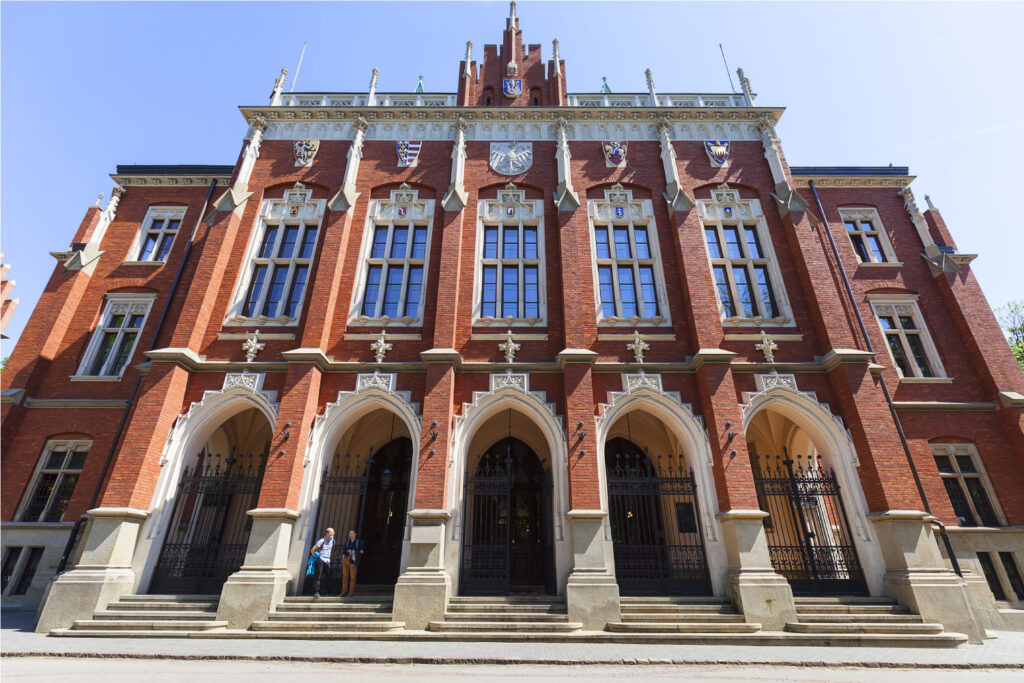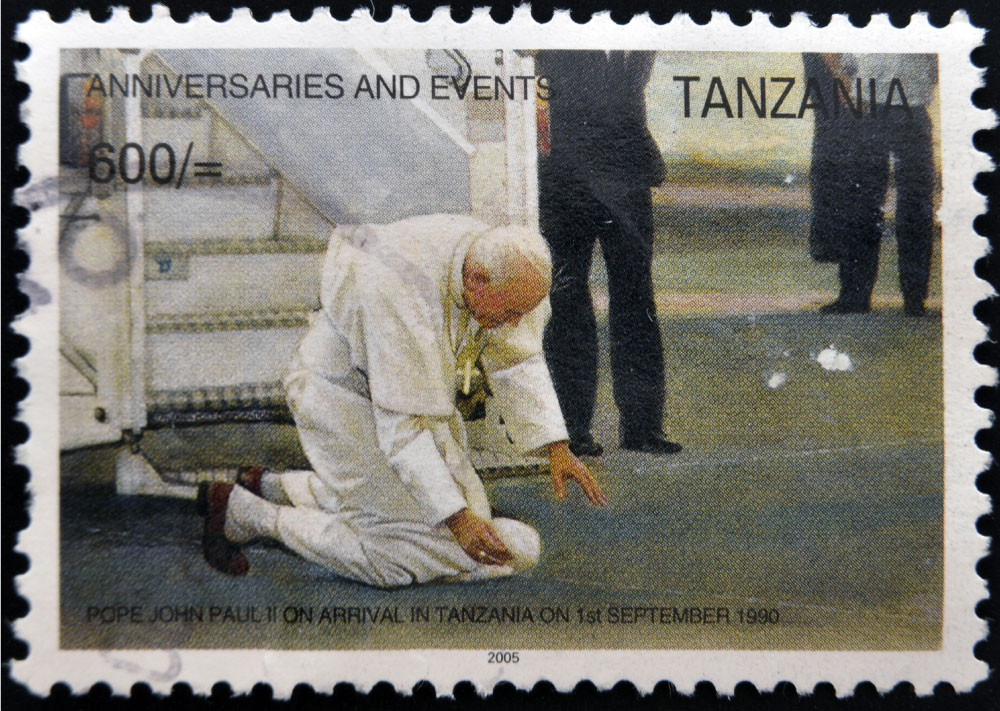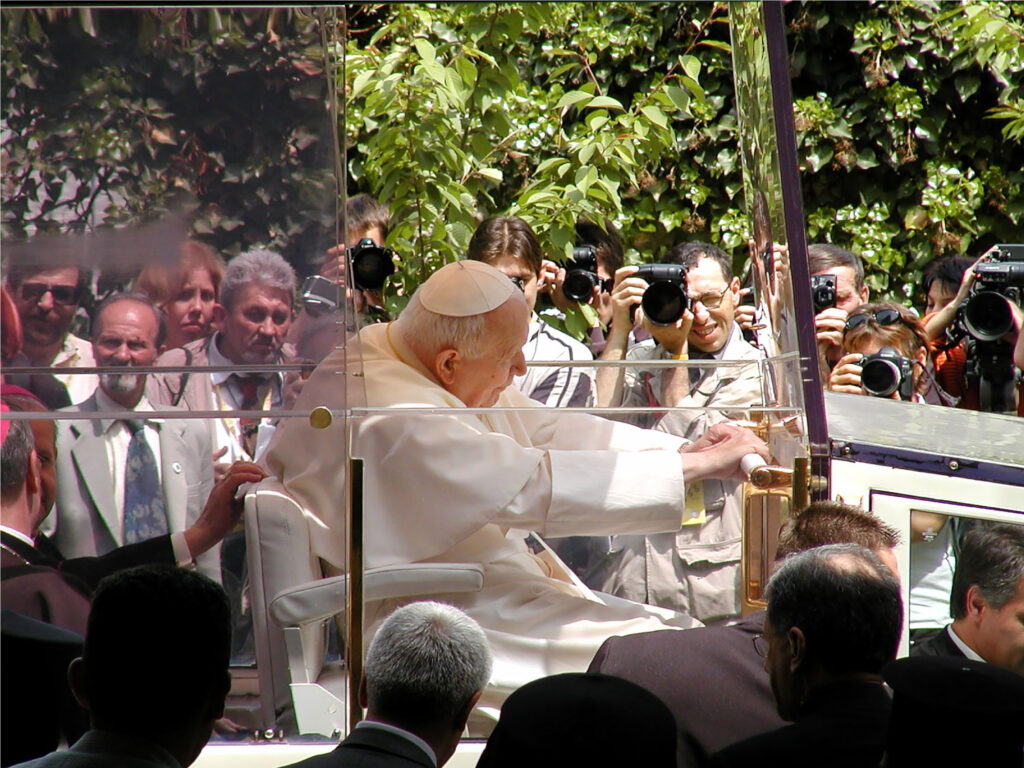Karol Józef Wojtyła was born in the Polish town of Wadowice in May 1920, the youngest child of Karol Wojtyla and Emilia Kaczorowska. His sister Olga had died before his birth but he grew up close to Edmund, his older brother, until Edmund died of scarlet fever contracted during his work as a physician.

In 1938 Wojtyla and his father moved to Kraków where he enrolled at the Jagiellonian University. As well as his studies he was required to participate in compulsory military training although he refused to fire a weapon. He also worked as a volunteer librarian, performed with several theatrical groups and worked as a playwright. His talent for language became apparent and he learned 15 languages, nine of which he would go on to use extensively as pope.
After Poland’s invasion by Nazi Germany in 1939, the university was forced to close. Wojtyla held various jobs in order to avoid deportation. The following year he suffered two major accidents which left him with one shoulder higher than the other and a permanent stoop. His father’s death in 1941 left him the only surviving member of his family.
In October 1942 Wojtyla knocked on the door of the Archbishop’s residence in Krakow and asked to study for the priesthood. In 1942, after another accident put him in hospital, and he took his survival as a confirmation of his vocation.

His studies at the seminary in Krakow ended and Wojtyla was ordained as a priest in 1946. He was sent to Rome to study, returning to Poland in 1948 for his first pastoral assignment in the village of Niegowić. Upon his arrival his first action was to kneel and kiss the ground, a gesture he would continue to repeat throughout his papacy.
He remained in Poland, teaching at his old university and then the Catholic University of Lublin. He earned a doctorate in Sacred Theology, wrote a series of articles for Krakow’s Catholic newspaper and worked with young people, joining them for outdoor activities, prayer, Masses and discussions. At that time, in Stalinist-era Poland, priests were not allowed to travel with students so Wojtyla asked his young companions to call him ‘Wujek’ (Uncle) so that outsiders would not know he was a priest. When he was named auxiliary priest of Kraków, his young friends thought this would change him. He assured them ‘Wujek will remain Wujek’ and the nickname stuck with him for the rest of his life.
In 1978 Wojtyla was elected as pope, the first non-Italian pope since 1523. He took the name John Paul ii in honour of his predecessor, John Paul i.

He travelled extensively around the world, attracting huge crowds wherever he went. He promoted a greater understanding between countries and campaigned against political oppression, violence and materialism. Pope John Paul ii is recognised as helping to end Communist rule in his native Poland and the rest of Europe. He survived an assassination attempt in 1981.
Pope John Paul ii was declared a saint after it was proven he had performed two miracles – unusually, both of them after his death in 2005. According to the church, the first miracle was on a French nun with Parkinson’s disease, five months after he died, and the second on a Costa Rican woman with an aneurism six years after his death, in 2011. He was beatified on 1 May 2011 and cannoised 27 April 2014. His feast day is 22 October.
